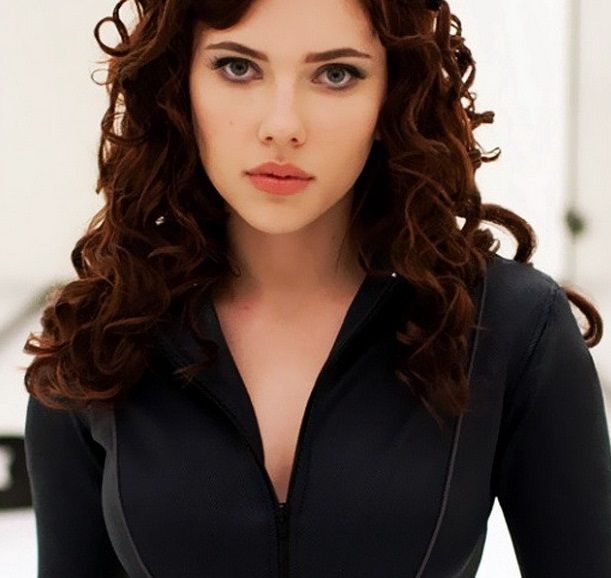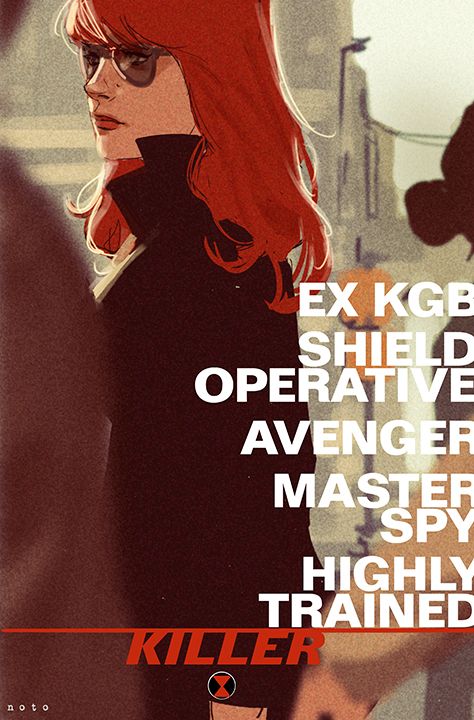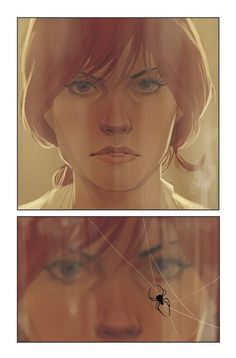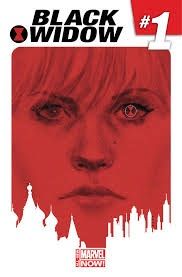Normally, right before the "read more" line, there's a spoiler disclaimer. I ask you to grab the issue or issues I'll be talking about and read along to make sure everyone's on the same page.
Today is different: If you own a copy of Black Widow #1 in its All-New Marvel NOW! form, I don't think I have to tell you anything. You know what the book is like, you know it's pretty awesome and that this was a long time coming, considering how popular the character's been since debuting on the big screen. On the other hand, if you don't have the issue, passed on picking up, or simply aren't interested in the continuing (hopefully!) adventures of Marvel's foremost super-spy, then please read on! There are so many reasons this book should hit the sales charts hard, and it's difficult for me to find who this book isn't for.
I mean, obviously it's not Plato's perfect comic book, and there are going to be some who give it a pass, but it just does so many things right! It hits so many sweet spots that were just right there for the taking that -- well, just keep reading for a detailed list. And if you weren't interested in the book, see if any of the following floats your boat, and then maybe give Black Widow #1 a second look?
Black Widow is in the public eye, thanks to Scarlett Johansson and the popularity of the Marvel Cinematic Universe. Even before that, Natasha was extremely well-traveled in the 616 universe as well: She started out in a villainous fashion as the era dictated dastardly Russian spies; she's actually fought a quarter of the Marvel Universe that she later joined, as Black Widow quickly gained a new costume, defected to the United States, starred in her own stories in Amazing Adventures, splitting the book with the Inhumans, and then in going into action with Daredevil. She broke up with Daredevil both professionally and romantically because he was holding her back, and returned to her freelance lifestyle, bouncing from one spy story to the next.
In a way, she's one of those anti-heroes that flourish in pop culture, as she remains mysterious and her motives have been suspect from time to time. Unsurprisingly then, her appearances in Iron Man 2 and The Avengers have been popular.
If the character is so great, why doesn't she have her own solo series? Good question, and one I hope the new title stands to address. For a while, she did great with a string of miniseries filled with foreign intrigue from the likes of Greg Rucka and Richard K. Morgan.
When getting into a Black Widow book, you need to have a game plan, a reason for her to be in the game. If you don't, you meander or have to make up reasons for her to go back for that One Last Mission. A lot of tales tend to make it personal, which can come off as either retconning or cheap in a "This time it's PERSONAL!" kind of way. The best thing about this new series, and why I hope it hangs around for the long haul, is that it completely takes it in the other direction. In the pages of Black Widow #1, by Nathan Edmondson and Phil Noto, I don't think it's spoiling anything to say Natasha Romanov is completing contracts in the spy game to "clear her ledger," to borrow the movie Widow's phrase. She's done a lot of bad in her life and she's going to set it right by doing the most good with her own bare hands. In taking missions she has no connections to to satisfy her own sense of morality, it becomes more personal than if she were trying to fight her ex-husband or find out who she really is.
Normally variant covers tend to be really nice, sometimes even nicer than the regular cover, but in this case I have to disagree. Noto's cover, from the red-and-white contrast referencing the blood that will be shed to clean her slate to the tiny silhouette of her home country dwarfed by her portrait, becoming bigger than where she came from, it's just so cool and dynamic which is exactly what you get with the interiors. Noto makes everything come alive in this mod style, referencing another time period that may not even exist. A time where the spy game was the coolest game in town and only taken on by the most charming, confident and deadly people on the planet. A time that looks just enough like ours to be modern but with just the right element of style to hearken back. The motion of the book is Bill Sienkiewicz-inspired for sure, with metaphor mixed in with action, elegance and danger blending together. Also, I have to give Noto credit for achieving a realistic style without seeming like a series of photographs; artists, when normally celebrated for realism, can look like they've cast their characters from living people or photo-references their backgrounds. This can totally pull you out of the story as your brain shouts, "LOOK, IT'S SAM JACKSON!" instead of Nick Fury. While Noto's work looks natural and warm with all the depth of real life, it doesn't seem to reference anything or look like anything I've seen, which tends to make it seem all the more lifelike to the brain.
While the thought of another ongoing comic can make your wallet make groaning noises, I hope Black Widow is part of the trend Hawkeye recently restarted: the done-in-one comic. Mind you, this isn't a complete story, but there's enough of a finish by the last page that really makes you feel like you read something rather than demanding you pick up the next issue for a pay-off. Edmondson might have something else in mind by Issue 2, but for now the plot allows us to not only follow Natasha through complex and dangerous missions, but we can just pick up another one when she's done. These could be as long as trade paperback and (more hopefully) a single issue. This format works so well for Hawkeye, as it entices new readers into minimal commitment for a sense of satisfaction after Clint's adventures and keeps long time readers coming back for more. It's no surprise that Natasha's stories would be just as fulfilling in this format, I just don't expect any episodes of "Dog Cops" to be mentioned therein.
Black Widow is unique in the fact that she is ... well, unique. Most Marvel heroines become part of the public consciousness through teams or a namesake; even Captain Marvel, the House of Idea's Wonder Woman-type, now bears the name of a former male hero. Black Widow is only of herself; yes, she's been the unwilling sidekick to male heroes and joined a few team, but she doesn't reference anything but the time in which she was conceived, when Russian spies were a credible threat. She's her own woman and represents a little of the '60s-'70s women's liberation movement. I know diversity is still an issue with the Big Two and, while it doesn't solve everything, Black Widow is a start to getting more women in solo titles. If this book doesn't succeed, I fear that Marvel could take that as a sign that the comics buying public just doesn't want to pay to see more progressive heroes.
And that's why I can't see this book failing anyone willing to give it a shot. If you've never read a comic in your life, Black Widow #1 is a good place to start since the first issue is fairly self-contained, leaving out origin, history or fan service to pack in as much style and action as they could. If you love the Marvel movies, it fits in very well with what you already know without relying on their continuity as a crutch. If you are a long time fan, this series fits in snugly with what you already know without a retcon to reboot the character's rich history. If you love art, you can just bask in the glow of Noto's delicious style and design. Even if you never read another issue, the first is a satisfying story that gives a lot of bang for your buck. You might even be tempted to look up the second issue!




